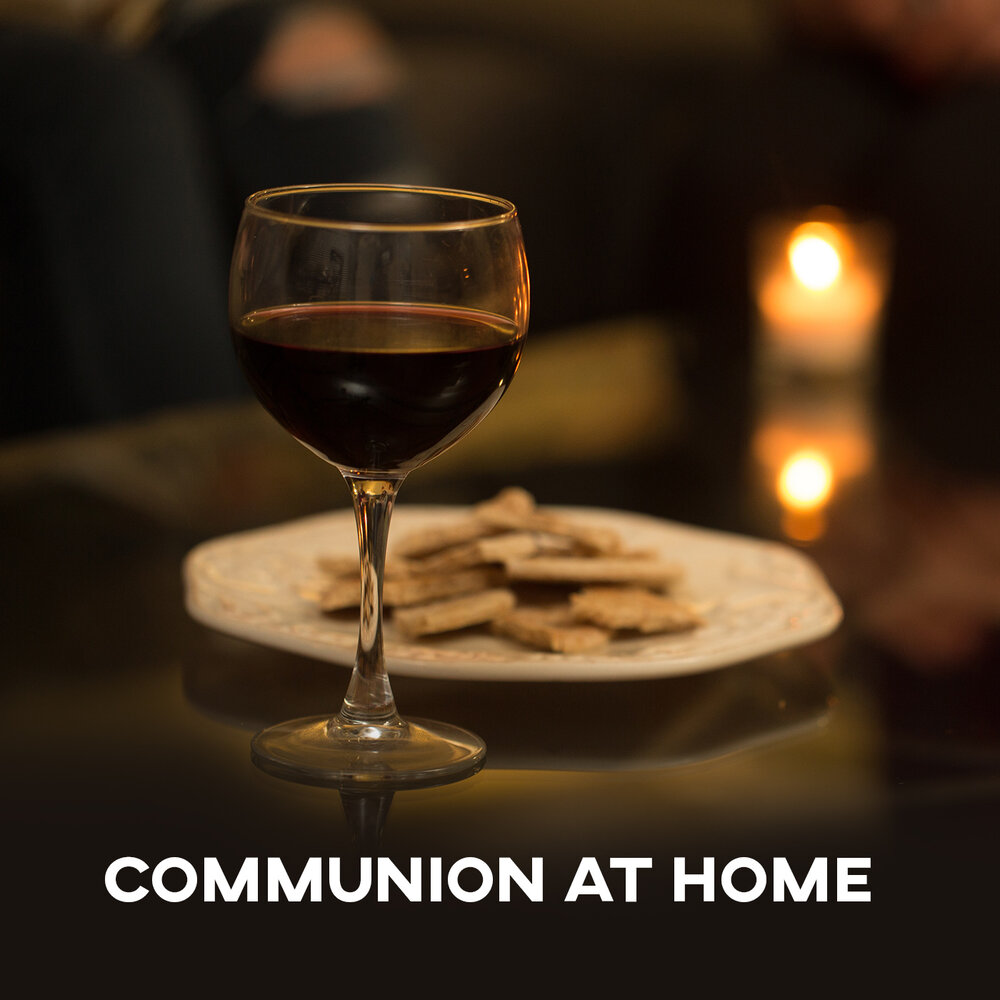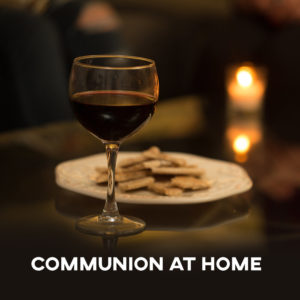The following is the pastor’s column appearing in the May Grace Notes newsletter of Grace Lutheran Church, Dodgeville, Wisconsin
Breaking Our Fast from the Lord’s Supper: Sharing Communion from Home
One of the hardest things about our suspension of in-person gatherings since mid-March has been the related hiatus on celebrating Holy Communion together. Numerous bishops and teaching theologians of the ELCA counseled early on that we keep a “fast” from the sacrament, a practice not unknown to church tradition during the season of Lent, especially for those preparing to be baptized and those “penitents” longing to be restored to fellowship in the church.
This we have done at Grace. We have not introduced adaptations during #SaferAtHome that could potentially transmit the virus, like drive-up Communion or Communion in small groups; nor have I had us rush headlong into the uncharted waters of online Communion without due prayer and study. We have fasted. In fact, by the time you are reading this it will have been almost exactly forty days since the last time the sacrament was shared at Grace. (As many have noted, the word “quarantine” literally means “forty days.”)
Are not God’s people getting famished by now in the wilderness of Covid?
On Sunday, April 26th, the 3rd Sunday of Easter, we will hear an account of how the resurrected Jesus “made himself known in the breaking of bread” with two disciples in a home in the village of Emmaus (Luke 24:28-35). Their altar was their kitchen table and they were only the smallest of groups gathered in one place for the Supper. Meanwhile, as these two learned upon returning to Jerusalem, Jesus had also appeared alive to Simon (24:34) at practically the same time he was “in” Emmaus. We are reminded by this timely word that our physical distancing is no obstacle for the real presence of the risen Christ.
Consider these words from a treatise of Martin Luther on the sacrament from 1527:
“Christ is everywhere and fills all things (Ephes. 1:23). He is bound to no particular place…or external thing, so that all that belongs to his kingdom is free and bound to nothing—the gospel, baptism, the sacrament, and Christians. For the gospel is and must be free in regard to all places and is bound to no particular spot…. So also baptism and the sacrament. For it is not necessary that in the churches alone and nowhere else there be preaching, baptism, and the sacrament. They can be in any place where there is need. It does not follow now that Christ in the sacrament is as if bound to one place, here or there. He and his sacrament are or may be free to be in any place.” – “Against the Heavenly Prophets in the Matter of Images and Sacraments,” trans. Conrad Bergendoff, Selected Writings of Martin Luther, Vol. 3, ed. Theodore G. Tappert (Minneapolis: Fortress, 2007) 298.
We have a unique opportunity now to receive Christ into our home and into our bodies right in the place where we are hunkered down. In our 8 am worship on April 26th, live streamed and broadcast on D99.3, I invite you to break the fast and share in the Lord’s Supper together (while apart) with the whole of Grace Church.
How to Prepare and How to Receive
What you will need to have set out in advance at home is some bread and some wine or grape juice. If you wish to bake from Grace’s communion bread recipe, it can be found on p. 11 of the newsletter, but any ordinary bread will do. Please use elements that are familiar to you from receiving Communion in the past and will not compromise your sense of reverence around the sacrament
Wait to eat and drink until I have spoken the Words of Institution and we have prayed the Lord’s Prayer. (Do not think of these words as magic words going through your radio or computer, but simply Christ’s own words of promise declared to you with a “bigger microphone.”) We will all receive together simultaneously, first the bread, then the cup, when I say “Given for you” and “Shed for you.” If you have others in your household you would like to repeat these words to and serve, you may do so.
After worship has ended, if you have extra bread and wine from your “altar,” I recommend you consume it. This is a normal practice in many congregations and it seems more fitting in this situation than the alternative of returning it to the earth, e.g. to a tree in your yard.
Finally, I would ask that you only participate live during the service proper and not in conjunction with a recording later (though available on Facebook or YouTube). Ours is a predicament of space and we have no need to impose further degrees of separation in time.
As long as we are confined to our homes (at least through May 26th now) on the Lord’s Day, we will observe a once-a-month pattern for Communion. The next “Communion Sunday” would be May 24 (7th Sunday of Easter; 9am Summer Schedule), when our Gospel includes this prayer of Jesus for his disciples: “Holy Father, protect them in your name that you have given me, so that they may be one, as we are one” (John 17:11).
Is This Real or Just “Virtual” Communion?
Finally, I am aware that some in the wider conversation in the ELCA at this time have referred to the practice I have described, sometimes pejoratively, as “virtual” Communion. Let’s not call it that. Where God’s Word is present together with the physical eating and drinking, we truly have Christ and the forgiveness of sins.
At the same time, I expect that in sharing the sacrament while not all physically together, we will feel both unified by the Spirit and painfully absent from one another. This paradox of presence and absence is always part of the experience of the Supper—we have Christ and yet long more deeply to see him face-to-face. Now we will taste that same paradox in terms of the church, the body of Christ.
Our physical presence to one another in the Lord’s supper is important, but this is an extreme situation calling for an extraordinary means of reception. After this time of isolating has mercifully come to an end, so too will celebrating Communion via the internet or airwaves.
For now, however, what must be proclaimed is the compassion of God for the hungry and thirsty. And what does God do for God’s people in the desert? Does he mandate for them a continual fast, until they can arrive at the land of promise? No. The simple truth is He feeds them.
Pastor Mark Williamson
The Rev. Mark Williamson was formerly on the roster of the Metropolitan Chicago Synod and a member of the board of Let’s Talk. He now serves as pastor of Grace Lutheran Church in Dodgeville, WI.



